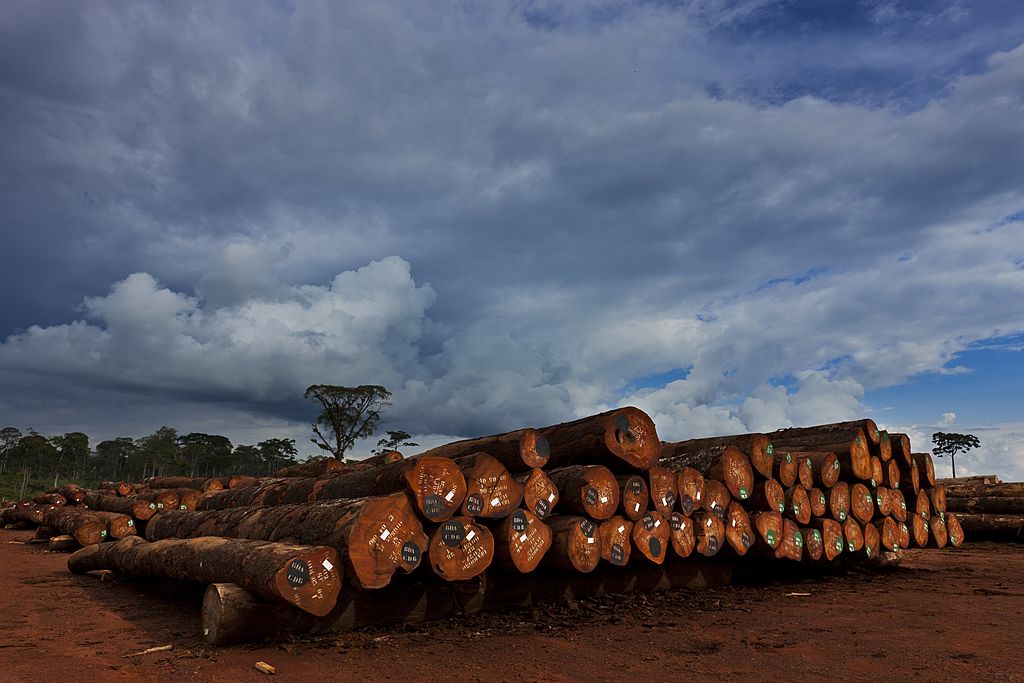ADF STAFF
Since entering the Central African Republic (CAR) in 2018, Russia’s Wagner Group mercenaries have ruthlessly exploited the country’s natural resources, most recently turning to logging to fund the organization and to fuel Russian President Vladimir Putin’s war in Ukraine.
In 2021, CAR authorities granted a 30-year logging concession to Bois Rouge, a company affiliated with Wagner, to harvest logs from a tract covering nearly 186,000 hectares — an area more than twice the size of the Mbaéré-Bodingué National Park just across the Mbaéré River.
If Wagner exploits just one-third of its land, the mercenary group could reap nearly $900 million by selling the logs on the international market, by some estimates.
Wagner and its affiliates aren’t the only groups grasping for the CAR’s forest resources. Rebel groups finance their own operations by selling illegally felled logs. Organized criminal gangs do much the same, often working with China to smuggle the logs out of the country and into Asian furniture markets.
“Timber trafficking has also been enabled by the CAR’s protracted political instability and has played a major role in funding the conflict that has decimated the country,” researcher Oluwole Ojewale wrote for the Institute for Security Studies.
Forests cover 37% of the CAR, which is part of the Congo Basin. However, with no forestry service functioning in most of the country and porous borders with neighboring countries, those forests are open for exploitation by criminal actors.
According to a report by the ENACT Global Organized Crime Index, many criminal groups in the CAR work with other networks in Sudan and South Sudan to harvest and smuggle trees. They traffic the timber overseas at the border with Cameroon, which serves as the landlocked country’s primary port. Local communities also exploit timber, mainly in the southern part of the country,
The Global Organized Crime Index ranks the CAR among the top 10 most crime-plagued countries in the world.
Wagner’s Bois Rouge affiliate received its logging permit after the concession was stripped from local company Société Industries Forestières de Batalimo, according to All Eyes on Wagner.
Wagner got the concession around the same time it and the CAR military were driving rebels with the Coalition des Patriotes pour le Changement, headed by former president François Bozizé, out of several cities in the Lobaye prefecture, which includes the Wagner land.
A closer look at the timeline suggests something else was happening.
“By the time the Russia-based enterprise was awarded the forestry concession, Wagner soldiers were already in control of the surrounding areas,” Ojewale wrote. “Military action could therefore be providing disguised protection for timber logging.”
Illegal and unregulated logging does significant harm to the communities that depend on the forest for income and resources along with damaging streams and rivers in the region.
“Illegal logging is part of a vicious cycle of opaque governance, exploitation, and insecurity that privileges the profit-seeking of select state officials and foreign actors,” analysts C. Browne, Catherine Lena Kelly, and Carl Pilgram wrote for the African Center for Strategic Studies. “These patterns reduce the legitimacy of the government overall, further contributing to instability and violence.”
As Wagner, organized criminal gangs, rebels and the government all scramble to extract millions of dollars from the CAR’s forests, armed groups are clearing villages — a violation of human rights — and leaving devastation in their wake.
“Curbing the activities of foreign actors, businesses and enablers of illegal logging and timber trafficking in the CAR is a Herculean task,” Ojewale wrote.

